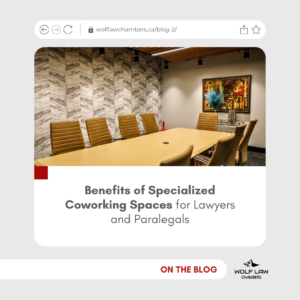strategy
How Workflow Automation Apps Save Time for Busy Law Firms
In today’s fast-paced legal industry, efficiency is a necessity. Law firms juggle tasks like case management, document drafting, client communication, and billing. Workflow automation apps streamline operations, saving time for what matters most—delivering exceptional legal services.
Time-Saving Benefits for Law Firms
- Document Management: Automation apps organize, store, and retrieve files quickly by tagging them by case or client.
- Client Communication: Tools can send reminders, schedule appointments, and handle routine inquiries, ensuring timely updates.
- Billing and Payments: Automation generates invoices, sends payment reminders, and processes payments seamlessly.
- Task Management: Assign tasks, set deadlines, and get notifications to stay on track.
- Compliance: Automation ensures filing deadlines and data storage meet regulatory standards, reducing risks.
Final Thoughts
Automation empowers legal teams by eliminating repetitive tasks, allowing them to focus on clients and complex legal matters. Ready to save time and boost efficiency? Share your experiences in the comments!
Best Apps to Organize Legal Documents on the Go
In the fast-paced legal world, managing and accessing documents efficiently is critical. Whether you’re a lawyer, paralegal, or business professional, the right app can make all the difference. Here are some of the best apps to organize your legal documents while on the move:
- Dropbox
A tried-and-true favorite, Dropbox is perfect for securely storing, organizing, and sharing legal documents. With its robust mobile app, you can access your files anywhere, collaborate with colleagues, and integrate with other productivity tools. - Evernote
Need to organize notes and documents in one place? Evernote lets you scan, store, and categorize legal documents effortlessly. Its search functionality even recognizes text within images and PDFs, saving you time. - Clio
Designed specifically for legal professionals, Clio is an all-in-one solution. It offers document management, case tracking, and secure client communication—all accessible via its mobile app. - Adobe Acrobat Reader
When it comes to editing and annotating PDFs on the go, Adobe Acrobat Reader is unmatched. You can sign, highlight, and share legal documents securely from your smartphone or tablet. - Notion
For customizable document organization, Notion is a great choice. It allows you to create shared workspaces, track tasks, and keep case-related notes neatly organized. - ScanSnap
If you often deal with physical documents, ScanSnap turns your phone into a portable scanner. It captures high-quality scans and integrates with storage apps like Dropbox and Google Drive for seamless file management.
Pro Tip: Always ensure your apps comply with data security and privacy regulations like GDPR or HIPAA to protect sensitive legal information.
#LegalTech #ProductivityApps #DocumentManagement
How Mobile Apps Are Revolutionizing the Legal Industry
The legal industry, traditionally known for its reliance on paperwork, face-to-face interactions, and manual processes, is undergoing a digital transformation—and mobile apps are at the forefront of this evolution. Here’s how mobile apps are reshaping the legal landscape:
1. Streamlined Case Management
Mobile apps like Clio and MyCase allow lawyers to manage cases, track billable hours, and access client information on the go. These tools provide a centralized platform for scheduling, document sharing, and client communication, increasing efficiency and reducing the margin for error.
2. Enhanced Client Communication
Clients demand accessibility and transparency. Legal apps now enable secure communication channels, allowing clients to track case progress, upload documents, and consult with their lawyers directly from their smartphones. This fosters trust and improves client satisfaction.
3. Access to Legal Research
Gone are the days of sifting through volumes of legal texts. Apps like Westlaw and LexisNexis offer instant access to vast legal libraries, case laws, and precedents, empowering lawyers to prepare stronger cases with greater speed.
4. E-signatures and Document Management
Mobile solutions such as DocuSign facilitate legally binding e-signatures, eliminating the need for in-person meetings or courier services. Lawyers can now draft, sign, and share documents securely and efficiently.
5. Courtroom Assistance
Apps are becoming indispensable in courtrooms. They allow lawyers to access case files, present evidence, and even analyze jury behavior in real time, enhancing their ability to advocate effectively.
6. Democratization of Legal Services
Apps like LegalZoom and Rocket Lawyer make legal services more accessible to individuals and small businesses. These platforms guide users through legal processes such as creating contracts, filing patents, or drafting wills, often at a fraction of traditional costs.
Embracing the Future: Mobile apps are not just tools; they are catalysts for innovation in the legal industry. By embracing these technologies, law firms and legal professionals can deliver faster, more efficient, and client-focused services. The revolution is here—and it fits right in your pocket.
Top Productivity Apps for Paralegals in 2025
Paralegals are the backbone of legal operations, handling research, drafting, and case management under tight deadlines. Staying organized and efficient is crucial in this fast-paced field. Here are the top productivity apps every paralegal should consider in 2025:
1. Clio
Clio remains a leader in legal case management software. Its ability to streamline document management, case tracking, and client communication makes it a vital tool for legal teams.
2. Notion
Notion’s customizable workspace is perfect for creating to-do lists, tracking projects, and storing case-related notes. Its collaborative features also make team coordination seamless.
3. Trello
For visual task management, Trello’s boards and cards allow you to prioritize and monitor deadlines effectively. It’s great for managing multiple cases simultaneously.
4. CaseFox
Designed specifically for legal professionals, CaseFox offers time tracking, billing, and task management. It’s intuitive and helps save valuable time on administrative tasks.
5. Grammarly
Drafting accurate legal documents is critical. Grammarly ensures your writing is clear, error-free, and professional, making it indispensable for reports, contracts, and emails.
6. Adobe Acrobat
Handling legal documents often involves working with PDFs. Adobe Acrobat’s advanced editing and signing capabilities simplify the process, keeping you productive and organized.
7. Otter.ai
Transcription tasks can eat up a lot of time. Otter.ai converts spoken words into text in real-time, making it easier to document client meetings or interviews.
Why These Apps?
In 2025, efficiency and adaptability are key. These apps help paralegals reduce manual effort, minimize errors, and maintain organization in a demanding profession. By leveraging technology, you can focus on the work that matters most.
How to Choose the Right Coworking Space for Your Legal Practice.
As a legal professional, your choice of workspace plays a crucial role in building trust, maintaining confidentiality, and growing your practice. Here’s how to choose the perfect coworking space for your needs:
1. Evaluate Location
Choose a space in a professional neighborhood that’s easily accessible for your clients and provides proximity to courthouses or other legal hubs.
2. Consider Professional Amenities
A good coworking space for legal professionals should offer essential amenities like:
- On-demand meeting rooms for client consultations.
- Printing, scanning, and storage options for legal documents.
- Reception services to create a polished first impression.
3. Network Opportunities
Some coworking spaces host networking events or house professionals from complementary fields, such as finance or real estate, which could generate referrals for your practice.
4. Test the Culture
Ensure the environment aligns with your professionalism. Visit the space, observe its vibe, and assess whether it supports focused, high-quality work.
Choosing the right coworking space isn’t just about functionality; it’s about finding a place that supports the credibility and efficiency of your practice. Take your time, weigh your options, and invest in a space that sets you up for success.
Benefits of Specialized Coworking Spaces for Lawyers and Paralegals
As the legal profession evolves, specialized coworking spaces are gaining traction as a valuable resource for lawyers and paralegals. Unlike traditional offices or generic coworking hubs, these tailored environments offer unique benefits that address the specific needs of legal professionals.
1. Professional Atmosphere
Specialized coworking spaces cater to the professional standards of the legal industry. They provide private offices, meeting rooms, and settings that exude credibility—ideal for client consultations and sensitive discussions.
2. Cost-Effective Solutions
For solo practitioners and small law firms, renting a full-fledged office can be costly. Coworking spaces offer flexible memberships, enabling legal professionals to access high-end facilities without the financial burden of long-term leases.
3. Access to Legal Resources
Many specialized spaces provide access to tools like legal research databases, court filing assistance, and even notary services. These resources streamline day-to-day tasks, allowing teams to focus on casework.
4. Networking Opportunities
Sharing a workspace with other legal professionals fosters collaboration and networking. Whether it’s exchanging insights or referring clients, the connections formed in these environments can lead to valuable partnerships.
5. Enhanced Productivity
Designed with the legal workflow in mind, these spaces minimize distractions and support focused work. Amenities such as ergonomic furniture, high-speed internet, and secure file storage further enhance efficiency.
Specialized coworking spaces are more than just a trend—they’re a smart solution for modern legal professionals seeking flexibility, professionalism, and community. If you’re a lawyer or paralegal looking to elevate your practice, consider exploring these tailored spaces to meet your needs.
Why Coworking Spaces Are a Game-Changer for Legal Professionals
In the fast-paced world of law, legal professionals are constantly seeking ways to stay ahead of the curve. As client demands evolve and business landscapes shift, one solution that is making waves in the legal field is coworking spaces.
Coworking spaces offer a flexible and cost-effective alternative to traditional office environments, and for legal professionals, they bring unique advantages. Here’s why coworking spaces are becoming a game-changer for lawyers, paralegals, and legal consultants:
1. Flexibility and Cost Efficiency Law firms, especially small and solo practices, often face the challenge of high office rent and overhead costs. Coworking spaces provide fully equipped offices without the commitment of long-term leases, allowing legal professionals to scale as needed.
2. Networking Opportunities Working alongside professionals from different industries creates a dynamic environment. Legal professionals can tap into a valuable network of potential clients, collaborators, and referral partners, which could be hard to access in a traditional office setting.
3. Professional Amenities Coworking spaces are designed with productivity in mind, offering everything from high-speed internet to meeting rooms and even virtual assistants. This means that legal professionals can have access to top-notch facilities without the overhead of maintaining an office.
4. Work-Life Balance Many coworking spaces offer flexible hours and the ability to work from various locations. This can help legal professionals maintain a better work-life balance while staying productive.
As the legal industry continues to adapt to new technologies and work habits, coworking spaces provide an innovative solution to the traditional office model, offering flexibility, networking, and professional support that can help legal professionals thrive.
Networking Strategies for Legal Teams in Coworking Spaces
In today’s dynamic work environment, coworking spaces have become a hub for collaboration, innovation, and opportunity. For legal professionals, networking within these spaces offers unique benefits. Here are some effective strategies to make meaningful connections:
Leverage Shared Events Participate in workshops, seminars, or community events hosted by your coworking space. These gatherings are perfect for meeting diverse professionals, exchanging ideas, and staying updated on industry trends. Make it a goal to introduce yourself to at least three new people at each event.
Build Reciprocal Relationships Networking isn’t just about gaining referrals; it’s about creating mutually beneficial connections. Offer your expertise to other members. For instance, if someone mentions a contract challenge, share general advice or suggest useful resources. This positions you as approachable and knowledgeable.
Utilize Common Areas The lounge or coffee station isn’t just for breaks; it’s a networking goldmine. Casual conversations can lead to surprising opportunities. Keep your introductions brief and engaging to foster genuine interest.
Collaborate on Cross-Disciplinary Projects Many coworking members are entrepreneurs or startups who may need legal guidance. Offer to host a brief “Ask a Lawyer” session to build credibility and trust.
Stay Visible and Accessible Consistency matters. Regularly engage with the coworking community both online (via shared platforms) and offline. A friendly demeanor and openness to chat can make a lasting impression.
For legal teams, coworking spaces are not just workstations but vibrant ecosystems of potential clients and collaborators. By taking a proactive and relationship-focused approach to networking, you can strengthen your professional presence while adding value to your community.








